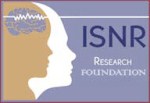 The ISNR Clinical Research Consortium called for members to get more active in clinical research. They also offered to provide logistical support that includes study design and implementation and assistance navigating the grant application process. The goal: to significantly increase the number of quality, publishable neurofeedback clinical trials. This announcement comes on a busy week of neurofeedback news, including two articles by The Washington Post covered here: The NIMH Will Sponsor The First Federally Funded Neurofeedback Study and Calls For Increased Regulation Of Neurofeedback. Check the end of this review for the actual annoucement sent to members.
The ISNR Clinical Research Consortium called for members to get more active in clinical research. They also offered to provide logistical support that includes study design and implementation and assistance navigating the grant application process. The goal: to significantly increase the number of quality, publishable neurofeedback clinical trials. This announcement comes on a busy week of neurofeedback news, including two articles by The Washington Post covered here: The NIMH Will Sponsor The First Federally Funded Neurofeedback Study and Calls For Increased Regulation Of Neurofeedback. Check the end of this review for the actual annoucement sent to members.
Here is the original announcement:
Research Support Offer to All ISNR Members
The ISNR Research Foundation will help any ISNR member to conceive, design, and execute a serious, publishable, scientifically sound/valid, statistically powerful, neurotherapy/brain function training clinical trial that will support strong inferences. This offer includes preparing a study proposal that can be put before any granting source proudly.
To support the effort, ISNR-RF will create the database infrastructure needed to accommodate and enable data collection, storage, analysis, client and researcher privacy and protection, and publication within the consortium structure. All aspects of the database will survive even the most rigorous scientific and client protection (Institutional Review Board) reviews.
These clinical trials will establish your reputation as a scientific researcher and the clinical validity of neurotherapy/brain function training in the mainstream scientific community. The proposed clinical trials will not necessarily require large sample sizes and they can be executed by individual neurotherapy/brain function training therapists or small clinics as well as large organizations. Please consider this opportunity to help yourself, your clients, and the neurotherapy/brain function training field.
If you and the ISNR-RF manage to garner grant funding, ISNR would like to receive appropriate grant-supported compensation for time spent on the research effort. ISNR would also like to hold second-level authorship for any published articles resulting from the research.
Charles R. Stark, M.D., BCIA-EEG
Chair, ISNR Clinical Research Consortium
BMED Report encourages all neurofeedback therapists to get involved! Few universities dedicate research manpower or money to neurofeedback clinical trials. This means that non-academic clinicians, businesses, and institutions will need to fill this vital role for evidence-based neurofeedback science to evolve.
Visit the ISNR Research Consortium here.
Enjoy.
No comments yet.